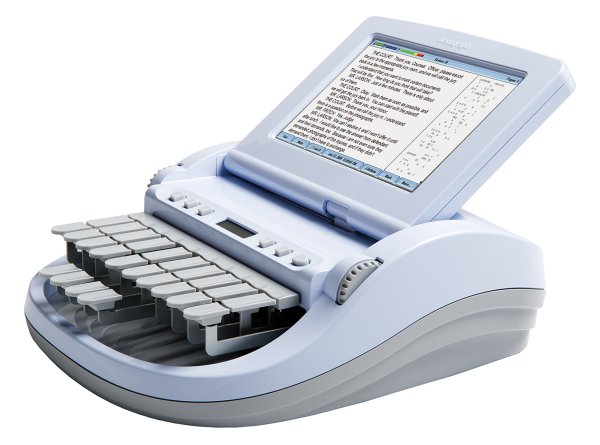Understanding the Important Duty of Court Reporting in Legal Process
Court coverage is typically overlooked, yet it's vital in lawful procedures. Allow's explore the essential features of court coverage and its significance in the lawful landscape.
The Background of Court Reporting
Court coverage has an abundant background that dates back to old civilizations, where scribes utilized numerous methods to record talked words. The earliest forms of shorthand emerged in Greece around 400 BC, enabling philosophers and political leaders to record speeches promptly. As you move with history, you'll find that the Romans adopted similar methods, fine-tuning them to document lawful proceedings. By the 16th century, modern-day shorthand systems started to materialize, making it possible for court reporters to generate exact records successfully.
In the 19th century, the innovation of the typewriter changed the profession, making it easier to produce readable records. The introduction of steno devices in the 20th century even more advanced court coverage, enabling real-time transcription during trials. Today, court reporters play a significant role in lawful procedures, making sure that every word spoken in the court room is precisely documented. Understanding this background highlights the value of court reporting in maintaining a fair legal system.
The Abilities Required for Court Reporters
As a stenotype reporter, you require strong typing skills to stay on top of the fast-paced discussion of lawful procedures. Your capacity to pay attention attentively is simply as necessary, guaranteeing every word is caught properly. Mastering these abilities is vital to delivering exact and reliable transcripts.
Efficient Typing Abilities

Strong Paying Attention Abilities
Strong listening skills are crucial for court reporters, as they must accurately record talked words in genuine time. This skill aids you set apart in between audio speakers, understand legal lingo, and adhere to complex discussions. Eventually, solid listening abilities make you a crucial property in lawful process, ensuring clarity and accuracy in the court record.
The Technology Behind Court Reporting
In the domain of lawful proceedings, technology plays a vital role in boosting the accuracy and effectiveness of court coverage. You're most likely knowledgeable about the typical stenotype device, but modern-day court reporters currently make use of innovative software application that incorporates with these machines, enabling real-time transcription. This suggests you can have instant accessibility to the records as the proceedings unfold.
Digital audio recording is one more technical innovation that's acquiring traction. It catches every talked word, assuring nothing is missed. Some reporters utilize voice acknowledgment software program, which can help improve the transcription process, though it still needs human oversight for precision.
In addition, cloud-based storage space permits easy access and sharing of records, improving collaboration among legal teams. By leveraging these innovations, stenotype reporter can offer high-quality, timely documents that are important for the legal procedure. Embracing this tech not only improves your understanding however also ensures dependability in legal documents.
The Court Reporting Process

As lawful proceedings unfold, the court reporting process becomes important in recording every information precisely. You'll discover that a stenotype reporter plays a vital function by recording talked words into composed text in real-time. When you enter the court, the reporter is currently prepared, geared up with specialized devices like stenographic makers and audio recording devices.
Throughout the procedures, the press reporter listens diligently, keying out whatever claimed, from witness statements to legal representatives' disagreements. You might see them stopping briefly occasionally to ensure quality or to ask for a repeat if something wasn't clear. After the session, the press reporter assesses the records, making required edits for readability.
This whole procedure not just assures a detailed record yet likewise prepares you for future recommendation throughout appeals or situation testimonials. In the busy environment of a court, the court reporting procedure is important for preserving an accurate account of events.
The Relevance of Precision in Transcripts
While a stenotype reporter's main responsibility is to record hop over to here talked words, the precision of these records is crucial for the integrity of lawful process. When you're associated with a case, you depend on accurate documents to understand the events and arguments presented. Any type of errors in transcription can lead to misunderstandings, misconceptions, and even wrongful judgments.
Exact records guarantee that every detail is captured, offering a trustworthy document for judges, lawyers, and courts. This degree of information is necessary throughout appeals or when referencing past testimonies. If a records has errors, it can weaken the whole lawful procedure, potentially affecting end results.
In addition, accurate transcripts promote the civil liberties of all celebrations included, advertising justness and transparency. Whether you're an attorney preparing for trial or a witness mirroring on your statement, you can trust that the court reporter's skill in precision plays a significant duty in your situation's success.
The Duty of Court Reporters in Various Legal Setups
Court reporters play a necessary role in various lawful settings, from tests to depositions and legal hearings. You'll locate that their work assurances every spoken word is precisely captured, which is important for the legal process. Recognizing exactly how their responsibilities vary throughout these atmospheres can highlight their impact on the justice system.
Court Reporters in Trials
In any type of legal trial, you'll find that court reporters play a vital function in catching the procedures with accuracy and precision. Court press reporters have to keep emphasis and rate, commonly utilizing specific devices to keep up with hectic dialogue. Eventually, court reporters help support the justice system, making sure openness and liability throughout tests.
Depositions and Lawful Hearings
Beyond tests, stenotype reporter likewise play a necessary function in depositions and legal hearings. During these proceedings, they capture every spoken word, guaranteeing a precise record of statements and discussions. You'll discover that this precision is necessary, as depositions typically serve as a foundation for later arguments in court. Stenotype reporter give real-time transcription solutions, enabling attorneys to follow along and attend to any type of issues right away. Their work boosts the performance of legal hearings, making it less complicated for all celebrations to refer back to the official document. Additionally, the records they create can be significant for charms and other lawful processes - court reporting. Basically, stenotype reporter are indispensable in keeping the integrity and quality of the legal record in depositions and hearings.
Future Trends in Court Reporting
As innovation proceeds to advance, the future of court reporting guarantees to be formed by cutting-edge devices and practices that enhance accuracy and effectiveness. You'll likely see boosted use fabricated knowledge and real-time transcription services, enhancing the reporting procedure. These advancements can help you gain access to read here transcripts quicker, which can be crucial for your lawful approaches.
In addition, incorporating video clip conferencing and remote coverage will certainly come to be extra common, allowing you to connect with stenotype reporter from anywhere (court reporting). This adaptability can make depositions and hearings extra available, saving both time and sources
You'll additionally see a focus on electronic recordkeeping, which streamlines the storage space and access of records. With cloud-based services, you'll have the capability to share papers safely and team up with your legal group in real-time.
Frequently Asked Questions
What Is the Typical Salary of a Court Reporter?
The typical income of a court reporter varies by location and experience, however court reporting you can expect it to vary from around $50,000 to $80,000 every year. Several factors affect this revenue, consisting of expertise and demand.
How Do I Come To Be a Licensed Stenotype Reporter?
To come to be a licensed stenotype reporter, you'll need to finish a court reporting program, pass a qualification test, and gain sensible experience. It's important to stay upgraded on industry standards and proceeding education and learning demands.
What Types of Instances Do Court Reporters Cover?
Court reporters cover numerous cases, consisting of criminal tests, civil suits, depositions, and arbitration hearings. You'll discover them recording whatever, making certain accurate documents for courts, attorneys, and celebrations entailed, capturing every word talked in lawful settings.
Are Court Reporters Required to Have a Level?
Yes, stenotype reporter commonly need a level or certification in court coverage. Many programs supply specialized training, ensuring you get the abilities essential for precise transcription and legal paperwork in various setups.
Can Court Reporters Work From Another Location?

Comments on “Top FAQs Answered About court reporting in Modern Trials”